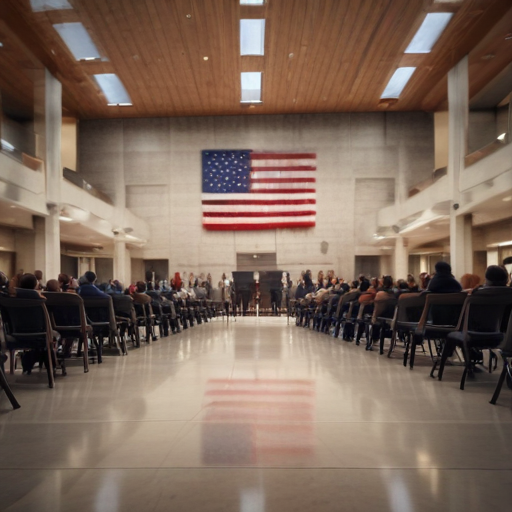Senator Tom Cotton’s unconventional strategy to push Tulsi Gabbard’s nomination through the Senate Intelligence Committee has garnered attention, especially with the participation of former Senator Kyrsten Sinema. Sinema, who has maintained a close friendship with Gabbard from their time in the House, played a pivotal role by vouching for Gabbard. She coordinated discussions with Senators Todd Young from Indiana and Susan Collins from Maine regarding their hesitations about Gabbard’s past.
This week, Young and Collins ultimately backed Gabbard, enabling Cotton’s committee to advance her nomination as Donald Trump’s director of national intelligence. Despite existing skepticism surrounding Gabbard’s controversial meetings with Syria’s deposed leader and her past comments that some interpret as sympathetic towards Vladimir Putin’s Russia, her confirmation is now imminent.
Cotton, known for his hawkish stance on national security matters, took on the challenge of Gabbard’s unique candidacy. Historically, Cotton and Gabbard have not aligned on many national security issues. Nevertheless, Cotton expressed confidence in Gabbard’s dedication to reforming intelligence protocols, stating, “She’s a patriot, and she is dedicated to serving our country.”
In a synchronized effort with Gabbard’s team, Cotton worked closely with various senators, including Joni Ernst, Mike Rounds, and former Intelligence Chair Richard Burr, to prepare Gabbard for her confirmation hearing. Even after the hearing, Cotton addressed lingering concerns from Republicans regarding Gabbard’s stance on classified information leaker Edward Snowden, suggesting that her more robust response behind closed doors should be publicized.
In a timely op-ed published in Newsweek, Gabbard clarified her position on Snowden, asserting that he “should have raised his concerns about illegal surveillance through authorized channels” while also proposing measures to mitigate future leaks similar to his.
This development highlights the complexities of navigating bipartisan relationships in the Senate and emphasizes the potential for cooperation among senators with diverse backgrounds and beliefs. Gabbard’s pathway to confirmation may reflect a willingness to embrace reform and open dialogue, promising a potential shift toward more collaborative approaches to intelligence-related matters in the future.
In summary, the support from both Cotton and Sinema signals a significant political maneuvering within a divided Senate, showcasing a willingness to bridge partisan gaps for the greater good of national intelligence and security reform.
